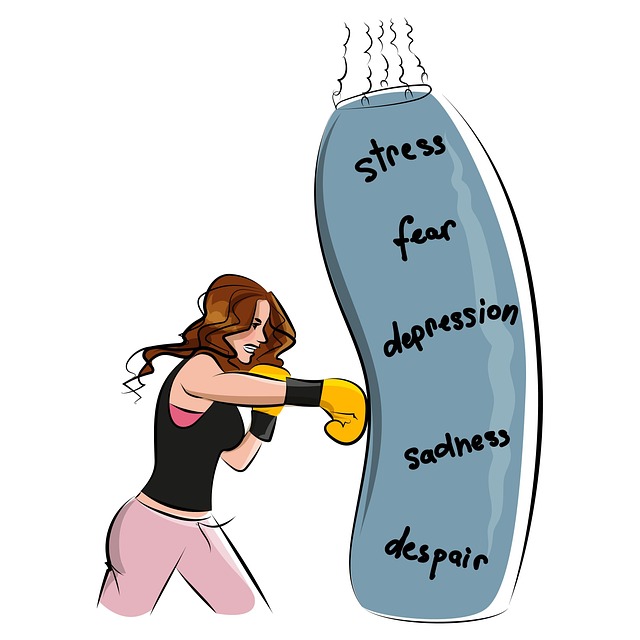Greenwood Village Trauma Therapy implements a comprehensive risk management strategy that goes beyond hazard identification, focusing on a nuanced understanding of human behavior and emotional responses in therapy. They prioritize creating safe spaces, empowering clients with self-care tools, and integrating mental health education programs to enhance communication strategies. This holistic approach minimizes risks while maximizing positive outcomes, promoting growth and healing for all individuals in their care. By emphasizing self-care practices and resilience-building techniques, they ensure therapists maintain emotional equilibrium, enabling them to deliver consistent and compassionate care effectively.
At Greenwood Village Trauma Therapy, effective risk management planning is paramount in ensuring the well-being of both patients and mental health professionals. This article delves into a structured approach to identifying and mitigating risks specific to trauma therapy settings. We explore potential hazards, from ethical dilemmas to patient vulnerability, offering a comprehensive strategy for safe practice. Through developing robust protocols, continuous evaluation, and adaptive measures, Greenwood Village Trauma Therapy demonstrates its commitment to enhancing care and fostering resilient outcomes.
- Understanding Risk in Mental Health Practice at Greenwood Village Trauma Therapy
- Identifying Potential Hazards and Vulnerable Populations
- Developing a Comprehensive Risk Management Strategy
- Implementing Protocols for Safe and Effective Care
- Continuous Evaluation and Improvement of Risk Mitigation Measures
Understanding Risk in Mental Health Practice at Greenwood Village Trauma Therapy

At Greenwood Village Trauma Therapy, we recognize that risk management is an integral part of delivering compassionate and effective mental health care. Understanding risk in this context goes beyond identifying potential hazards; it involves a nuanced grasp of human behavior, emotional responses, and the complex dynamics inherent in therapy sessions. Our approach to risk management is deeply rooted in fostering a safe and supportive environment while empowering clients with tools for self-care and resilience.
Greenwood Village Trauma Therapy prioritizes emotional intelligence as a cornerstone of our risk mitigation strategies. By integrating mental health education programs designed to enhance communication strategies, we equip both therapists and clients with the skills to navigate challenging emotions and interactions constructively. This holistic approach ensures that our practices not only minimize potential risks but also promote positive outcomes, fostering growth and healing for all individuals engaged in our care.
Identifying Potential Hazards and Vulnerable Populations

Mental health professionals, like those at Greenwood Village Trauma Therapy, often encounter complex situations that can pose unique risks. Identifying potential hazards is a critical first step in risk management planning. This process involves recognizing various threats, including but not limited to, work-related stress, traumatic events experienced by clients, and the impact of societal pressures on both professionals and their clientele. Vulnerable populations, such as individuals dealing with severe mental illnesses or those from marginalized communities, may require specialized attention and tailored strategies to mitigate risks effectively.
By adopting the Mind Over Matter Principles, professionals can foster a robust self-care routine development for better mental health. This involves cultivating inner strength through practices that balance work and personal life, manage stress levels, and promote resilience. Equipping ourselves with these tools not only safeguards our well-being but also enables us to provide more compassionate and effective care to our clients.
Developing a Comprehensive Risk Management Strategy

Mental health professionals, like those at Greenwood Village Trauma Therapy, face unique challenges that demand a robust risk management strategy. Developing a comprehensive approach involves integrating several key components to create a resilient practice and protect both clients and practitioners. The first step is conducting thorough risk assessments, identifying potential hazards such as burnout, secondary trauma, or ethical dilemmas. These assessments are crucial in understanding the specific risks within their practice areas, enabling tailored interventions.
A robust strategy encompasses not just identifying risks but also implementing resilience-building techniques. Adopting Mind Over Matter principles can empower professionals to manage stress, enhance self-care, and foster a culture of support. By prioritizing resilience, mental health practitioners can better navigate the demands of their work, ensuring they are equipped to provide optimal care for years to come.
Implementing Protocols for Safe and Effective Care

Effective risk management planning for mental health professionals involves implementing robust protocols that prioritize both patient safety and the well-being of care providers. At Greenwood Village Trauma Therapy, we understand that managing risks in a therapeutic setting requires a multifaceted approach. This includes establishing clear guidelines for emotional regulation among therapists to prevent burnout and ensure they remain equipped to handle complex client needs.
By integrating evidence-based communication strategies and fostering a culture of open dialogue, mental health professionals can create an environment where clients feel heard and understood. Equally important are self-care practices that encourage practitioners to maintain their own emotional equilibrium, thereby enhancing their ability to offer consistent and compassionate care.
Continuous Evaluation and Improvement of Risk Mitigation Measures

Mental health professionals at Greenwood Village Trauma Therapy understand that risk management planning is an ongoing process. Continuous evaluation and improvement of risk mitigation measures are essential components of ensuring a safe and supportive environment for clients. Regular reviews of existing protocols allow for adaptation to emerging trends, new research findings, and evolving best practices in the field.
Through a robust Mental Wellness Podcast Series Production and Crisis Intervention Guidance, therapists stay abreast of the latest advancements in stress management techniques. This proactive approach ensures that the team is equipped with effective tools to address emerging risks and challenges, fostering an atmosphere of continuous learning and improvement within the practice.
Mental health professionals at Greenwood Village Trauma Therapy recognize that managing risks is essential for delivering safe and effective care. By understanding the unique risks within their practice, identifying vulnerable populations, and implementing robust risk management strategies, they can foster a supportive environment. Continuous evaluation of these measures ensures adaptability to evolving challenges, ultimately enhancing patient outcomes. This comprehensive approach, exemplified at Greenwood Village Trauma Therapy, underscores the commitment to navigating complexities in mental health care with resilience and expertise.













